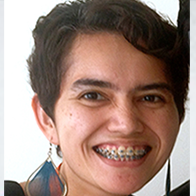My attendance at the G25 public forum on Islam in a constitutional democracy over the weekend left a bittersweet feeling.
 In celebrating the first anniversary of its open letter, first published on December 7, 2014, the group has been on a trajectory of success.
In celebrating the first anniversary of its open letter, first published on December 7, 2014, the group has been on a trajectory of success.
In one year, the group was able to expand the discourse on Shariah law and its encroachment of the Federal Constitution, subsequently bringing in the question of good governance and corruption, politicising Islam, and even the depth of Islamic knowledge among the 60% of Malaysians who are Muslims.
In addition to press statements by the group, G25 has also successfully launched a brief on political funding reforms led by Dr Terrence Gomez and endorsed by 70 other CSOs, held a two-day public forum with lively discussions and active participation, and a book of essays, “Breaking the Silence: Voices of Moderation, Islam in a Constitutional Democracy”.
I do not discount the work by civil society organisations (CSOs) over the years which have long been fighting for these issues, but to have a group of mostly retired civil servants (with the exception of a few who are still in service) take on the activist mantle is nothing short of revolutionary.
Further, G25 itself agrees that the way forward towards its goal of having a consultative committee on Shariah and constitutional law would require the inclusion of many, not only CSOs from all backgrounds of activism, non-Muslims, non-lawyers, women and youth but also the support of the Malaysian public.
Herein thus lies the snag.
My calendar the past year has been filled with attending forums by CSOs on various issues revolved around having a contradiction of laws that govern me, a Malay Muslim woman in Malaysia.
I cannot help but notice similar faces, as I also noticed that some more outspoken personalities have retreated into the background.
I noticed that it is still hard to initiate discourse among my own circle of friends, understandably the concerns of the public at large the past year has been around GST and increasing cost of living. I noticed that I myself compartmentalise my life – an irony as all these issues evidently affect me.
When I first read the open letter by G25 last year, I was lounging by a pool in Siem Reap, having completed the Angkor Wat Half-Marathon. Two days later, I was back in Malaysia, got in touch with Datuk Noor Farida Arifin and Tariq Ismail, and out of it I am #26 was born.
The online petition remains at 5,935 signatories today. In terms of achievement, I do not think that it has been successful in providing public support to the work of G25.
Yet, the reason it was started remains.
As a Malay Muslim woman in Malaysia, I am governed by both civil and Shariah laws. Yet, I am repeatedly told that I have no authority to question Shariah law, especially since I do not cover my hair with a piece of clothing.
Not surprisingly, even if I do, the length and thickness of the cloth would still be in question.
This non-issue was raised at the G25 public forum by a participant who did not introduce himself, whereby he questioned whether it was “moderate” and according to the principles of Wasatiyyah that so many of the female members of G25 and the contributors to the book, do not don the tudung.
A pity, as the time allocated for the question could have been used to question the controversial discourse on the principles of Wasatiyyah and Maqasid Al Shariah.
A pity, as the articulate arguments backed by substantial evidence provided by the female panellists at the forum and the female authors of the papers compiled in the book are reduced to whether they don the tudung.
The root cause of this runs deep. Ingrained patriarchy combined with thought control and insecurity results in a public that are happy to parrot beliefs that are supposedly of cultural and religious “obligations”.
Take female genital mutilation (FGM), for example. A study conducted in 2010/12 with more than 1,000 respondents cited that FGM rate is at 90.8% among Muslims, of which approximately 83% cited religious obligation as a reason for having their daughters circumcised.
There was even a fatwa on this by the National Fatwa Council of Malaysia. Yet, until today, there are no known medical benefits to FGM – thus, why was this considered obligatory?
Why was this fatwa accepted without question? What is the basis of any issue becoming fatwa and why was such fatwas gazetted and ruled as law?
Is it because simply, it is fatwa?
I humbly think that this is a lame excuse, for most of us every-day Malaysians to simply accept and submit, without question, without information and knowledge. How many more draconian, invasive rulings are we to accept without question?
When would we realise that ultimately, we are the ones who will be subject to these laws?
How much longer would we allow ourselves the bliss of ignorance?
I think it is high time the Malaysian public stand up and be counted in such discourses. – December 9, 2015.
* This is the personal opinion of the writer or publication and does not necessarily represent the views of The Malaysian Insider.


Comments
Please refrain from nicknames or comments of a racist, sexist, personal, vulgar or derogatory nature, or you may risk being blocked from commenting in our website. We encourage commenters to use their real names as their username. As comments are moderated, they may not appear immediately or even on the same day you posted them. We also reserve the right to delete off-topic comments